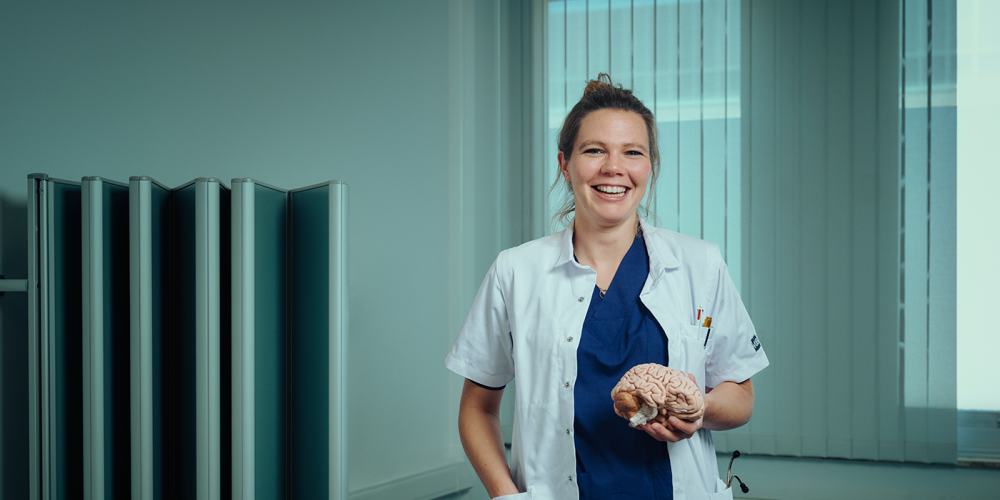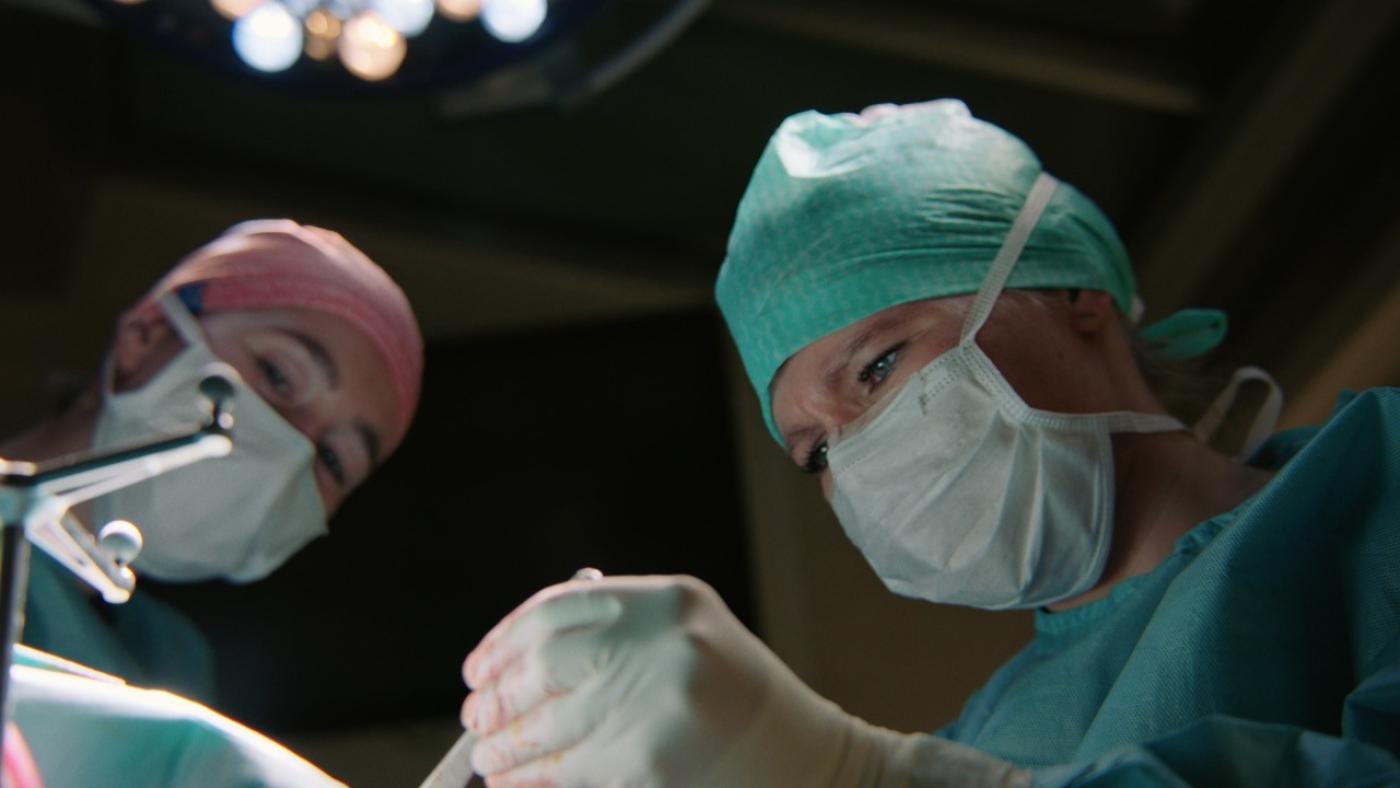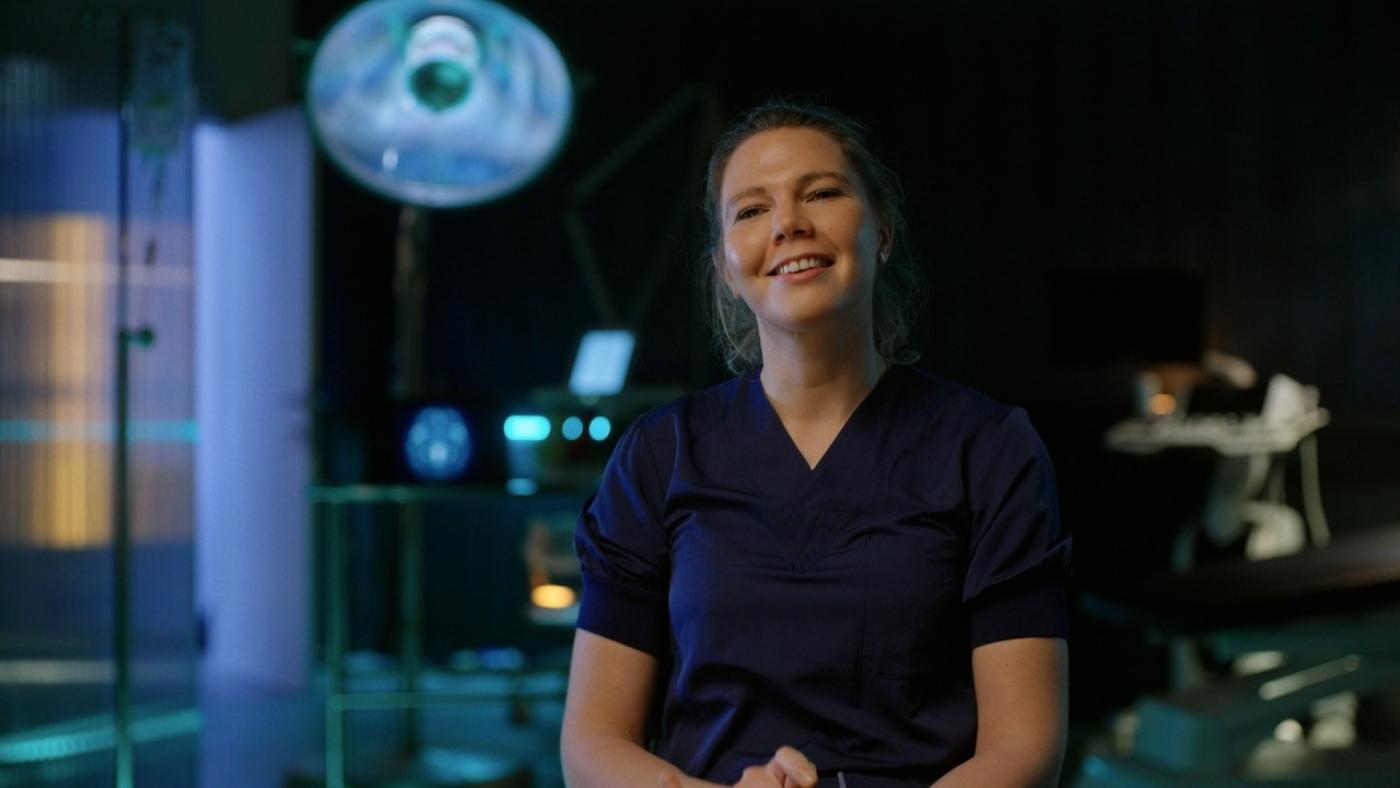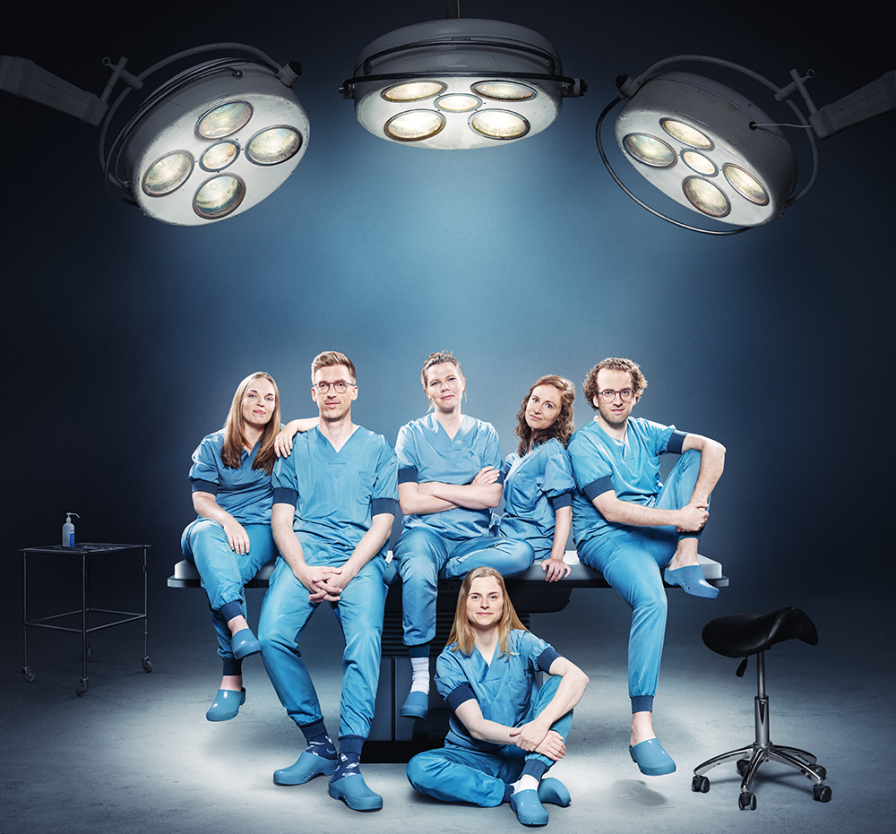
Elle Vermeulen admits she was surprised when the communication team at UZ Brussel emailed her about joining Top Doctors of Tomorrow. “I don’t really like being in the spotlight,” she says. Still, she decided to take on the challenge. The result can be seen from Tuesday, September 9, airing weekly on Play4 and GoPlay.
Dream of saving lives, easing pain and curing the sick? Choose a medical degree at VUB.
How did the programme makers find you?
“The team first contacts several hospitals. My head of department, Professor Bruneau, put my name forward. At first, I was even a bit angry. What had he dragged me into? Television is far outside my comfort zone. On top of that, I was working at Radboud University Medical Centre in Nijmegen at the time. But both my supervisors there and my family immediately said: you should do this. So, I went to listen. They spoke to hundreds of trainees. What were the odds of me being selected? After an initial call and a home visit, I heard nothing for two months. I thought it was over. Then, in September, came the call: I was in. I hesitated but said yes. I like challenges.”

Photo: Play Media
How were the recordings?
“Intense! Filming began just a week later, so they could also capture the end of my traineeship in Nijmegen. You get swept up in it quickly. On TV it looks like short fragments, but in reality we had 12 full days of filming between September and January. A whole crew follows you: director, cameraman, sound engineer… It’s demanding, because you also have to keep explaining what you’re doing. I soon forgot the cameras, though. During surgery or consultations, I only focus on the patient. Still, when they asked me to, say, walk down the corridor for a shot, I felt uncomfortable. Being the centre of attention is not really my thing.”
Was it easy to get patients on board?
“Luckily I didn’t have to do that myself. The production team asked patients for permission. Not always easy. On some long consultation days, hardly anyone agreed to be filmed, even though the crew was there all day. Or you think a case would be interesting, but the patient doesn’t feel comfortable. And I completely understand. Patients literally reveal their innermost selves. That’s not easy.”
“I’m glad I never tried to be someone else. It made me more confident”
Did the experience teach you something about yourself?
“I’m glad I never tried to act differently. I stayed true to myself and did my work as usual. The programme confirmed that I’m doing my job the way I want to. And that patients appreciate it. It made me more confident.”
What is life like as a neurosurgery trainee?
“After six years of medicine at VUB – where I truly loved studying – I specialised for another six years in neurosurgery. As a trainee, you work fully in the department and build up practical experience. You’re employed, paid, and no longer sitting in lecture halls. But the neurosurgery taught in the basic degree is limited. During the specialisation you’re expected to study theory in your own time. Without knowledge, you can’t advance in practice. At the end of the traineeship there’s a final exam for the recognition committee. I also took an extra course to obtain the European diploma in neurosurgery. Not compulsory, but very enriching.”
Where does your passion for neurosurgery come from?
“During my studies, neuroanatomy fascinated me the most. I think the brain is the most intriguing organ. Your heart keeps you alive, but your brain makes you who you are. At the same time, I love working with my hands. That combination makes neurosurgery the perfect field for me. I couldn’t imagine doing anything else.”

Elle Vermeulen (photo Play Media)
“Every millimetre counts. One wrong move can have major consequences”
It’s also a field with huge responsibilities.
“Absolutely. Every millimetre matters. Patients place immense trust in you, and one wrong move can have major consequences. That doesn’t scare me, it motivates me to do everything perfectly. I’ve fortunately not experienced many complications, but once things didn’t go as planned. I share that story in the programme. Luckily, the patient was unaffected, but it weighed on me. What could I have done differently? My supervisor said he would have acted exactly the same, which helped. Still, you have to learn to deal with such moments. Open and honest communication with the patient helps. Involvement and transparency are values I hold onto – not only during surgery, but before and after as well.”
What are the biggest challenges for neurosurgery today?
“Medicine is evolving at lightning speed. Neuronavigation, a kind of GPS system for operations, has already transformed our work. Artificial intelligence will increasingly play a role. Procedures that are now too complex or risky might become possible in the future. But AI has limits. Neurosurgery isn’t standardised. Every brain is different, and every surgical step influences the next. That’s why I believe the surgeon’s role will remain crucial. As doctors, we must keep striving for innovation. Study new techniques, stay critical, and integrate what you believe in into practice. After every surgery, I ask myself: what can I improve? I think you have to question yourself for life. Otherwise, you stagnate. And medicine is not about standing still.”
“After every operation, I ask myself: what could I have done better? I believe questioning yourself is something you should never stop doing”

Photo: Play Media
What’s next after your traineeship?
“There are several options, but I’m not sure yet. I definitely want to continue in vascular neurosurgery. My big dream is to become Belgium’s first hybrid neurosurgeon. Abroad, there are already specialists who perform both endovascular procedures (currently done by radiologists here) and open surgery. In Nijmegen, I saw how this improves care. Patients have one trusted doctor who masters both techniques and can decide what’s best purely in their interest. I hope to make that possible in Belgium too.”
Has becoming a mother changed your outlook on work?
“Before giving birth, I was convinced I’d move abroad. Now, just weeks after the birth, I’m head over heels in love with my daughter and I notice my perspective shifting. Still, my passion for neurosurgery is as strong as ever. I keep reading scientific papers. Science doesn’t wait. And I know my job also makes me a happier person at home.”